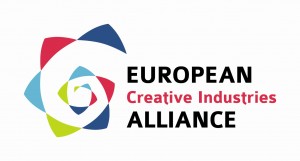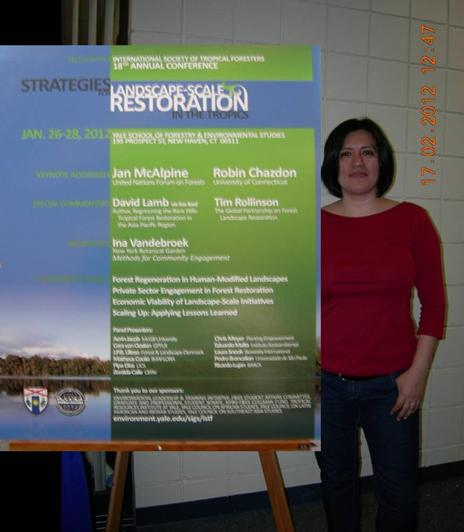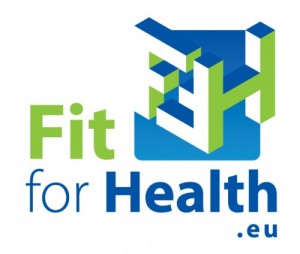With only so much grant money in the world, Adam Golberg’s second of a two-part series, looks at how to move forward when it becomes clear that your time courting a potential funder comes to an end. Adam works at the University of Nottingham and runs the Cash for Questions blog – http://socialscienceresearchfunding.co.uk/.
You can read the first part here – Coping with rejection: what to do if your grant application in unsuccessful part 1
In the first part of this series, I argued that it’s important not to misunderstand or misinterpret the reasons for a grant application being unsuccessful. In the comments, Jo VanEvery shared a phrase that she’s heard from a senior figure at one of the Canadian Research Councils – that research funding “is not a test, it’s a contest”. Not getting funded doesn’t necessarily mean that your research isn’t considered to be of high quality. This second entry is about what steps to consider next.
1. Some words of wisdom
‘Tis a lesson you should heed: Try, try, try again.
If at first you don’t succeed, Try, try, try again
William Edward Hickson (1803-1870)
The definition of insanity is doing the same thing over and over but expecting different results
Ben Franklin, Albert Einstein, or Narcotics Anonymous
I like these quotes because they’re both correct in their own way. There’s value to Hickson’s exhortation. Success rates are low for most schemes and most funders, so even if you’ve done everything right, the chances are against you. To be successful, you need a degree of resilience to look for another funder or a new project, rather than embarking on a decade-long sulk, muttering plaintively about how “the ESRC doesn’t like” your research whenever the topic of external funding is raised.
However Franklin et al (or al?) also have a point about not learning from the experience, and repeating the same mistakes without learning anything as you drift from application to application. While doing this, you can convince yourself that research funding is a lottery (which it isn’t) and all you have to do is to submit enough applications and eventually your number will come up (which it won’t). This is the kind of approach (on the part of institutions as well as individuals) that’s pushed us close to ‘demand management’ measures with the ESRC. More on learning from the experience in a moment or two.
2. Can you do the research anyway?
This might seem like an odd question to ask, but it’s always the first one I ask academic colleagues who’ve been unsuccessful with a grant application (yes, this does happen, even at Nottingham University Business School). The main component of most research projects is staff time. And if you’re fortunate enough to be employed by a research-intensive institution which gives you a generous research time allocation, then this shouldn’t be a problem. Granted, you can’t have that full time research associate you wanted, but could you cut down the project and take on some or all of that work yourself or between the investigators? Could you involve more people – perhaps junior colleagues – to help cover the work? Would others be willing to be involved if they can either co-author or be sole author on some of the outputs? Could it be a PhD project?
Directly incurred research expenses are more of a problem – transcription costs, data costs, travel and expenses – especially if you and your co-investigators don’t have personal research accounts to dip into. But if it turns out that all you need is your expenses paying, then a number of other funding options become viable – some external, but perhaps also some internal.
Of course, doing it anyway isn’t always possible, but it’s worth asking yourself and your team that question. It’s also one that’s well worth asking before you decide to apply for funding.
3. What can you learn for next time?
It’s not nice not getting your project funded. Part of you probably wants to lock that application away and not think about it again. Move onwards and upwards, and perhaps trying again with another research idea. While resilience is important, it’s just as important to learn whatever lessons there are to learn to give yourself the best possible chance next time.
One lesson you might be able to take from the experience is about planning the application. If you found yourself running out of time, or not getting sufficient input from senior colleagues, not taking full advantage of the support available within your institution, well, that’s a lesson to learn. Give yourself more time, start earlier before the deadline, and don’t make yourself rush it. If you did all this last time, remember that you did, and the difference that it made. If you didn’t, then the fact is that your application was almost certainly not as strong as it could have been. And if your application document is not the strongest possible iteration of your research idea, your chances of getting funded are pretty minimal.
I’d recommend reading through your application and the call guidance notes once again in the light of referees’ comments. Now that you have sufficient distance from the application, you should ‘referee’ it yourself as well. What would you do better next time? Not necessarily individual application-specific aspects, but more general points. Did your application address the priorities of the call specifically enough, or were the crowbar marks far too visible? Did you get the balance right between exposition and background and writing about the current project? Did you pay enough attention to each section? Did you actually answer the questions asked? Do you understand any criticisms that the referees had?
4. Can you reapply? Should you reapply?
If it’s the ESRC you’re thinking about, then the answer’s no unless you’re invited. I think we’re still waiting on guidance from the ESRC about what constitutes a resubmission, but if you find yourself thinking about how much you might need to tinker with your unsuccessful project to make it a fresh submission, then the chances are that you’ll be barking up the wrong tree. Worst case scenario is that it’s thrown straight out without review, and best case is probably that you end up with something a little too contrived to stand any serious chance of funding.
Some other research funders do allow resubmissions, but generally you will need to declare it. While you might get lucky with a straight resubmission, my sense is that if it was unsuccessful once it will be unsuccessful again. But if you were to thoroughly revise it, polish it, take advice from anyone willing to give it, and have one more go, well, who knows?
But there’s really no shame in walking away. Onwards and upwards to the next idea. Let this one go for now, and working on something new and fresh and exciting instead. Just remember everything that you learnt along the way. One former colleague once told me that he usually got at least one paper out of an application even it was unsuccessful. I don’t know how true that might be more generally, but you’ve obviously done a literature review and come up with some ideas for future research. Might there be a paper in all that somewhere?
Another option which I hinted at earlier when I mentioned looking for the directly incurred costs only is resubmitting to another funder. My advice on this is simple… don’t resubmit to another funder. Or at least, don’t treat it like a resubmission. Every research funder, every scheme, has different interests and priorities. You wrote an application for one funder, which presumably was tailored to that funder (it was, wasn’t it?). So a few alterations probably won’t be enough.
For one thing, the application form is almost certainly different, and that eight page monstrosity won’t fit into two pages. But cut it down crudely, and if it reads like it’s been cut down crudely, you have no chance. I’ve never worked for a research funding body (unless you count internal schemes where I’ve had a role in managing the process), but I would imagine that if I did, the best way to annoy me (other than using the word ‘impactful‘) would be sending me some other funder’s cast-offs. It’s not quite like romancing a potential new partner and using your old flame’s name by mistake, but you get the picture. Your new funder wants to feel special and loved. They want you to have picked out them – and them alone – for their unique and enlightened approach to funding. Only they can fill the hole in your heart wallet, and satisfy your deep yearning for fulfilment.
And where should you look if your first choice funder does not return your affections? Well, I’m not going to tell you (not without a consultancy fee, anyway). But I’m sure your research funding office will be able to help find you some new prospective partners.
If your research application is unsuccessful then consider running it through our internal peer review scheme (the RPRS) to see about resubmitting the idea to an alternative funding body. Speak to Caroline O’Kane if you’re interested.
 The first round of applications for the Grants Academy has now closed.
The first round of applications for the Grants Academy has now closed.


























 REF Code of Practice consultation is open!
REF Code of Practice consultation is open! BU Leads AI-Driven Work Package in EU Horizon SUSHEAS Project
BU Leads AI-Driven Work Package in EU Horizon SUSHEAS Project Evidence Synthesis Centre open at Kathmandu University
Evidence Synthesis Centre open at Kathmandu University Expand Your Impact: Collaboration and Networking Workshops for Researchers
Expand Your Impact: Collaboration and Networking Workshops for Researchers ECR Funding Open Call: Research Culture & Community Grant – Apply now
ECR Funding Open Call: Research Culture & Community Grant – Apply now ECR Funding Open Call: Research Culture & Community Grant – Application Deadline Friday 12 December
ECR Funding Open Call: Research Culture & Community Grant – Application Deadline Friday 12 December MSCA Postdoctoral Fellowships 2025 Call
MSCA Postdoctoral Fellowships 2025 Call ERC Advanced Grant 2025 Webinar
ERC Advanced Grant 2025 Webinar Update on UKRO services
Update on UKRO services European research project exploring use of ‘virtual twins’ to better manage metabolic associated fatty liver disease
European research project exploring use of ‘virtual twins’ to better manage metabolic associated fatty liver disease